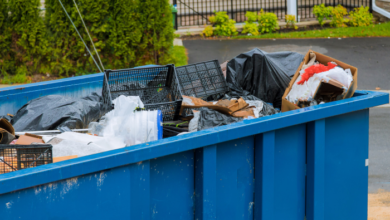Why Plagiarism is a Serious Concern & How to Avoid it while Writing

Plagiarism has indeed emerged as one of the major concerns in the world of academic writing as well as business and professional writing in this modern era. Advanced online resources and easy access to information have increased pressure on students and working professionals to produce quality and authentic content. Most students end up copying from other sources, however, because of laziness, not that they do not know better. The assignment help will help demonstrate why plagiarism is such a grave issue and the most practical advice and strategies against it in writing.
Understanding Plagiarism: A Deeper Look
Plagiarism according to various definitions is presenting someone else’s work, thought, or originality, as one’s own. Such examples include borrowing an entire essay, borrowing some paragraphs, and even restating some forms without reference at all. Now certainly, there are many ways this can be done and not all its forms are subtle.
It is often associated with academic dishonesty but can cause very extreme and professional effects in writing, journalism, and content development. It is not only the repetition of words in a text; rather, it is about simple practices, such as paraphrasing an idea without the right citation or copying someone’s artwork without permission.
Why Plagiarism is a Serious Issue
1. Academic Consequences
Academic penalty on the spot would be given in case of a student if he or she found plagiarism. Colleges and universities are never casual while dealing with a plagiarism case. He or she commits plagiarism and must face an assignment failure, fewer marks, or even expulsion cases. Really would harm and affect a serious student’s long-term career planning and prospects, too.
2. Ethical Issues
Its best defense against plagiarism is its ethical character; this is a kind of intellectual property theft since one’s work is passed off as someone else’s. This harms not only the reputation of the whole academic process but also permits dishonest conduct to go unchallenged. In practice, it means that the plagiarists themselves cannot learn to succeed on their own; thus, this creates personal development and growth issues.
3. Legal Consequences
Plagiarism sometimes leads to litigation. Original work carries copyright. When a person uses the work of another without that person’s permission or acknowledgment for that matter, that person stands liable for litigation. It is quite tough financially and is lost professionally, hence one will lose their professional reputation for all time.
4. Loss of Trust and Reputation
Reputation is everything to any profession. Once caught for plagiarism, either at school or at work, it’s really difficult to recover lost trust. In this case of plagiarism, one might pass the trust on to skills and credibility as a peer, colleague, and professor and be branded for years with a stigma of plagiarism.
5. Undermining Education
However, education is meant to improve the thinking skills, creativity, and writing skills of an individual. Plagiarism deprives the process of education to the students, a free-cut shortcut that steals them away from wrestling through the material they are learning, understanding the content, and upgrading their skills.
How to avoid plagiarism in writing
Now that it is clear why plagiarism is such a serious matter, let us now discuss several efficient strategies and tips for avoiding one in your paper. Using these best practices will ensure that your work does not become a plagiarized piece, thus ensuring it is ethical, original, and of high quality.
1. Know What Plagiarism Is
It means knowing what plagiarism is in fact. Plagiarism does not involve the copy-paste of a real word-to-word text. It also encompasses the following aspects
- Presenting someone else’s idea that is taken and not put within quotation marks: Direct quotes are not in quotation marks but their source is known
- Your prior work: Turning in a paper or assignment written previously, often referred to as “self-plagiarism.”.
- Not Common Knowledge: This is only if the information can be deemed common knowledge or general public knowledge. In this case, it does not require citation but takes care of what can be considered common knowledge.
2. Proper Citation
The best technique that one can use to avoid plagiarism is proper citation. Citations indicate that one has done his homework as well as gives the real authors all their due credits. There are many kinds of citations depending on the kind of assignment one has, for example:
Harvard referencing appears much in the UK, especially in business, humanities, and social sciences.
- APA referencing: It is quite common in psychology, education, and social sciences.
- MLA: Commonly used in the humanities, such as in literature and philosophy.
- Chicago: Frequently used in history and sometimes in other courses.
You will only use the citation style that your instructor or your institution requires. Be sure to know how to format both in-text citations and the reference list at the end of your paper
3. Paraphrase Correctly
In writing, paraphrasing is highly precious, but if it fails to be done correctly, it means that one is only rearranging some words or inversions of the same sentence; thus, it doesn’t make it one’s work. To paraphrase correctly:
- Be aware of the original idea in its entirety before presenting
- Present an idea in one’s own words and not by rewording but by restating information.
- Always recognize the origin of the idea one is paraphrasing.
Proper paraphrasing will show that you have read and could express it in your writing style.
4. Use plagiarism checkers
Plagiarism detection tools are easily available in today’s digital world. A plagiarism checker before submitting your assignment can help you identify unintentional similarities to other works. Many universities also use plagiarism detection software, so it is essential to run your work through one of these tools first to avoid any issues.
There are numerous free and paid plagiarism checkers available on the internet. Some of these include:
- Turnitin: One of the most popular plagiarism detection tools in the academic world
- Grammarly: Plagiarism checking is part of the premium subscription for Grammarly.
- Quetext: It’s free and paid, and will check your work for plagiarism. Run your paper past one of these tools so you don’t get errors that come back to haunt you later.
5. Track Your Sources
It is easy to forget where you got a particular idea, quote, or statistic when researching for an assignment. To avoid forgetting to cite something, keep track of all the sources you’re using. Make a citation list as you go along with your research so that you can find the right material when you’re writing.
Use a tool such as Zotero or Mendeley to sort and keep your references. Using these tools will let you build a repository as well as write in the citation style of choice, bibliographies.
6. Develop Your Concepts
This often occurs when a student fails to develop his new ideas and relies too much on the reservoir of prepared materials. The first step to taking control is by interacting with the material and then seriously thinking over the information provided. Do not sum up the source; rather try to synthesize information with the experience one gains and conclude otherwise.
Now that you are bringing your thoughts into the writing, your words will automatically be more original and more valuable.
7. Quotation Marks for Direct Quotes
If the words are quoted from the sources, quotation marks are used, and in-text citations are applied. This is not only if it is just a few words quoted; it has to be acknowledged that it belongs to someone’s work, and this gives intellectual property credibility to the text because arguments can be supported well with authoritative sources.
8. Seek help with the assignment when necessary
Sometimes, you get yourself in a tricky position because of many tasks and deadlines that have to be met. You may not know how to avoid plagiarism or even how to write your paper. You can order online assignment help and professional tutors will guide you on proper citing, accurate paraphrasing, and how your work can be original.
Conclusion
The most serious issue is plagiarism, which carries very serious implications-whether it is academically, ethically, or legally. Last, students must learn what plagiarism is and how not to commit the act at all costs. Some of the following suggestions such as proper citation, avoiding plagiarized citation, and checking one’s work for plagiarism will ensure one is original and credible as a writer.
If you can’t do assignments or are not sure how you could avoid plagiarism, then hire professional help from the likes of Assignment in Need ( assignnmentinneed.com ), and that work you will be presenting as yours will be the best and even a whisper of plagiarism cannot be traced to it, thus giving you a peaceful mind and more time to study.
By taking these precautions, you’ll be well on your way to producing outstanding, original work that showcases your creativity and academic integrity.



